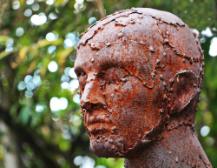This symposium explores historical and contemporary popular street parade including the kazoo 'jazz' marching bands of the coalfields areas; the entertaining troupes and carnival display morris troupes of the North West of England; brass bands and majorettes, town carnival and Caribbean carnival; and the ‘queens of industry’ interwar phenomenon in the North of England. Street parade and performance are important aspects of historical working-class leisure; contemporary forms involving girls and women are particularly likely to be hidden from view.
The event is aimed at museum professionals and will showcase practical examples of participatory mapping, oral history collection, curation and exhibition, digitisation, archive and database creation, as well as joint projects with visual artists and academic researchers.
Five museums and eleven universities are taking part in this event, which will conclude with a roundtable event with funders and stakeholders. The symposium will lay the groundwork for further research collaborations and funding bids. We anticipate that the museums involved will take a leading role in ongoing research, collection and public engagement into popular street parade and performance.
Funding for the symposium was generously provided by the Creativity and Culture & Communication Theme Research Champions priming funds at the University of York. The event is organised by Dr Frances Thirlway, Dr Lucy Wright and Dr Laurie Hanquinet in partnership with Woodhorn Colliery Museum, the National Museums of Wales and the Huis van Alijn Museum of Everyday Life (Belgium).
Programme
Tuesday 10 July 12-12.30pm: arrival and lunch
12.30-2.30pm Session 1: ‘Jazz’ marching bands & coalfield areas - historical
Discussant: Dr Sue Bruley (Portsmouth University)
Dr Steve Thompson (Aberystwyth University)
Jazz bands in the south Wales coalfield in the 1920s
Ceri Thompson (National Museum Wales)
‘A Dreadful Noise’; Marching bands in the Big Pit collections
Louise Dickerson (National Museum Wales)
The jazz band experience in South Wales and the North East of England today
Georgina Ascroft (Woodhorn Colliery Museum)
Jazz bands and carnivals: a regional museum perspective?
3-4.30pm Session 2: Jazz bands & coalfield areas - contemporary
Discussant: Dr Laurie Hanquinet (University of York)
Dr Claire Barber (Huddersfield University)
‘Mining Couture: A Manifesto for Common Wear’ at Snibston Discovery Museum
Dr Trish Winter (Sunderland University) and Lynn Killeen (artist)
Whose Culture Counts? Participatory Mapping as a way of investigating culture with communities
Dr Frances Thirlway (University of York)
Jazz bands and the national imaginary: an autonomous working-class culture?
5-6pm Session 3: Entertaining and carnival morris troupes in the North West of England
Discussant: Professor Theresa Buckland (Roehampton University)
Dr Lucy Wright (University of East Anglia)
"Hidden Dancers": Girls' morris dancing and entertaining troupes and the politics of participation'
Dr Dave Petts (Durham University)
Traditional dance and material heritage: a northern perspective
Wednesday 11 July from 9.30am
9.30-11am Session 4: Brass bands, carnivals and pageants Discussant: Jo Reilly (Heritage Lottery Fund)
Marie Vandecaveye & Hanne Delodder (Huis van Alijn Museum of Everyday Life, Ghent)
The ‘En avant, marche!’ project: digitising majorette and brass band archives in Belgium and the associated exhibition and public engagement
Tola Dabiri (Leeds University)
Archiving Intangible Heritage
Dr Mark Freeman (UCL Institute of Education, London)
Pageants, Places & Publics: reflections on ‘The Redress of the Past’
11.30am to 1pm Session 5: Queens of industry, queens of carnivalDiscussant: Dr Emily Zobel Marshall (Leeds University)
Sonya Dyer (free-lance artist and curator)
Curating ’50 years of Leeds Caribbean Carnival’ 2017
Anne Bradley (National Coalmining Museum, Wakefield)
Coal Queens: the Nation’s Friendliest Beauty Competition
John McGoldrick (Leeds Museums)
From Loom to Limelight: Putting the Industry Queens Back Together Again
1-2pm Closing session & lunch: Round table discussion with stakeholders and funders
With Karen Buchanan (Arts & Humanities Research Council), Angela Chappell (Arts Council), Jo Reilly (Heritage Lottery Fund) and Abdou Sidibe (Big Lottery Fund).
REGISTER HERE





